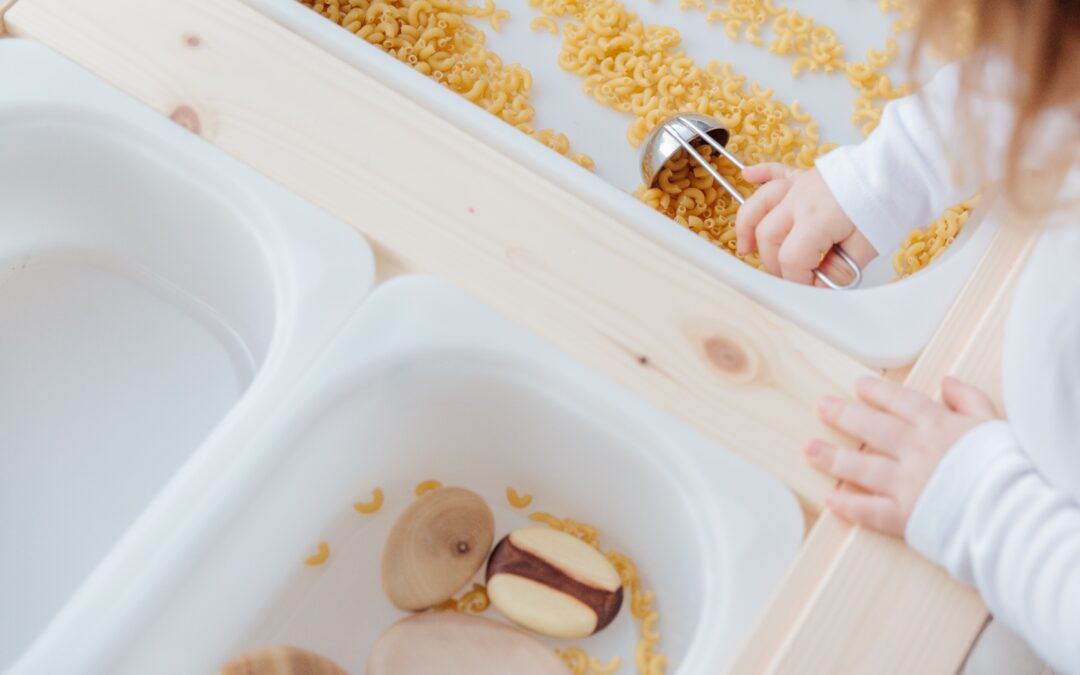At STEMful, play is an integral part of our educational programs for children. When children have fun while learning, it helps them develop a passion for exploring and understanding the world around them! Sensory science is a fascinating subject area in science, technology, engineering, and math (STEM) education for children. Today, we’re exploring why children love sensory science experiences.
1. Sensory Science Play Can Be Fun and Messy (and Beneficial)
Any parent knows that children love getting messy! When appropriate opportunities arise for getting their hands “dirty,” the novelty of it being okay can be absolutely thrilling for growing minds! Permission to enjoy sticky, slimy, foamy, or even bubbly substances and materials isn’t just entertainments for children, though. It also helps them develop fine motor skills.
Sensory science activities that let children experiment with different materials–touching, picking up, scooping, moving, manipulating, and feeling them with their hands–supports children’s fine motor skill development. Building coordination between their eyes and the small muscles in their hands helps children with important tasks such as zipping up their jackets, buttoning buttons, and tying shoelaces.
Such fine motor skills come in handy as children get older and have more opportunities for hands-on learning!
2. Sensory Science Helps Children Relax
As exciting as sensory science learning can be for children, it is actually a calming and relaxing way for children to learn. In fact, sensory science is an excellent tool for helping children manage and regulate their emotions.
When children are overstimulated, anxious, or frustrated, sensory science activities give them an educational outlet where they can focus. When they focus their attention on their senses, it helps their nervous systems regulate to a baseline of calm. Sensory learning activities done at home and at school allow them to manage their internal emotions, restlessness, or agitation independently.
3. Children Can Explore Without Rules
Aside from basic guidelines for setting up an activity and its objectives, generally, sensory science activities don’t have rules. That means children can observe, engage, and experiment without limits.
This freedom of discovery creates endless possibilities for how children can interact with and learn from sensory science experiences. Trying new things and seeing what happens is fun! And as children are constantly learning rules and guidelines for how to live and behave in the world around them, an open learning activity is a treat for them.
4. They Take Pride in Solving Problems
While sensory science activities can feel like play, small children are actually gathering information, testing theories, and solving problems as they go. Simple activities present problems or challenges that children learn to solve and take pride in accomplishing.
Perhaps a child is trying to solve the problem of how far they can fill a container with water before it spills over. Or, they’re faced with the question of how to stack items of different sizes and weights. Practicing an approach to a problem and finding a solution gives children the confidence to solve problems elsewhere in their education and lives.
5. Sensory Science Helps Children Express Themselves
Sensory science presents fantastic opportunities for children to develop language skills and learn how to express themselves. Throughout sensory science projects and activities, children discover new vocabulary, share observations, and practice using descriptive language (ex. “The slime is sticky,” “The ball bounced high,” or “The foam fizzled.”)
Through sensory science learning, children also get to explore more advanced language skills, like inference and problem-solving questions. Talking through the reasons something happens and vocalizing their conclusions is a great way to practice language skills. The ability to articulate their observations, questions, and hypotheses supports their continued learning and self-expression in and out of the classroom.
Enroll Your Children In Our New Sensory Play Classes!
We’re excited to now offer a new opportunity for children to enjoy the benefits (and fun!) of sensory science activities at STEMful. Our new Sensory Play classes give babies and toddlers (ages 1-2.5 yrs) the opportunity to learn through hands-on activities, develop a curiosity for STEAM subjects, and even get a little messy! Classes begin in March and there is still time to register!

